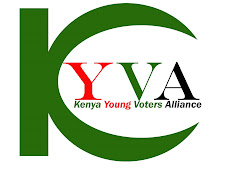KYVA is a conglomerate of organizations and individuals committed to ensuring that Kenya as a country manages to achieve set developmental goals to meet both the international and national targets. The idea was mooted by the (SONU) leadership of 2003/4. KYVA leadership is composed of diverse backgrounds and experiences. We urge all Kenyan youths to take charge of leadership at the counties and national levels. Register as voters and vote in large numbers for young visionary leaders.
Monday, May 3, 2010
THE WHIMSICALITY OF WANTING TO INFUSE MORALITY IN THE DRAFT CONSTITUTION.
Any controversial national debate on the future of our country must always begin with the question of legality only then can we proceed to the question of morality.This two-step approach is what we mean when we say that our government operates under a rule of law. Some people seem to forget easily that the question of legality (which so often resolves itself into a question of constitutionality) is both fundamental and paramount on any given issue.
It is perplexing as well as perturbing that they have failed to go back to the basics and remind themselves that all great political issues eventually resolve themselves into legal issues. And since the Constitution is the fundamental and paramount law of the land, all debates on great national policy issues must begin and end with the Kenyan Constitution.
When some of them opine that the rejection of the draft constitution will mean going back to the current constitution which outlaws abortion I think they are obviously tethered on confusion's tail end. Suffice to say that what the current constitution has done is to leave the operationalization of the clause on abortion in the province of legislation. Indeed, the provisions in the penal code are no different from what is in the draft constitution. Are the naysayers saying that they are ready to live with the penal code that has the same provisions like the draft Constitution but reject the latter?
On this alone, can they be honest enough to tell us the motivation behind them yielding to the temptation to oppose the draft constitution. In this regard, I am afraid that they are truly caught up in the whimsical to the extent that they have totally failed to focus on the constitutional issue. Or may be, as it has been said, they are salivating at the prospects of swimming in the American Dollars whose sole intention is to debilitate the constitution making process in the country.
With regard to the Kadhis courts, I wish to remind the clergy (and those politicians hiding behind them) that they are no more catholic, pentecostal or believers in the African Traditional Religion than the rest of us. I have never, as a Christian, felt my rights infringed upon by the existence of the Kadhis courts in the constitution. If, however, at a latter date, they prove detrimental to my faith, then I will cross the bridge at that juncture. I am acutely aware that the draft constitution provides a window through which those aggrieved can amend it, so why all this fuss? Unless, of course, we do not subscribe to the biblical teaching that we are all equal in the eyes of God (with or without an earthly constitution).
And while the clergy are at it, a section of the politicians in the “Yes camp” are busy instilling fear in the electorate that we need all the naysayers on our side lest they defeat the constitutional referendum. Others like Augustino Neto (Saturday Standard, 1st May 2010) are imputing that the referendum may meet its Water Loo when the minority abstain from voting hence denying the referendum the quorum necessary for it to be valid. Evidently, this witty piece of writing is aimed at inciting the naysayers into abstention.
I wish to remind them that if we needed to have everybody on the yes side, then the import of a referendum will be lost. In any case, the referendum laws, in many countries do not provide for quorums. Save for those that put the threshold as low as 40%, the issue of threshold is deliberately left out in many countries. Still, many other people are of the opinion that just as it is unconstitutional to make voting compulsory so is the threshold requirement unconstitutional.
TOME FRANCIS,
BUMULA.
http://twitter.comtter.com/tomefrancis
Subscribe to:
Comments (Atom)
